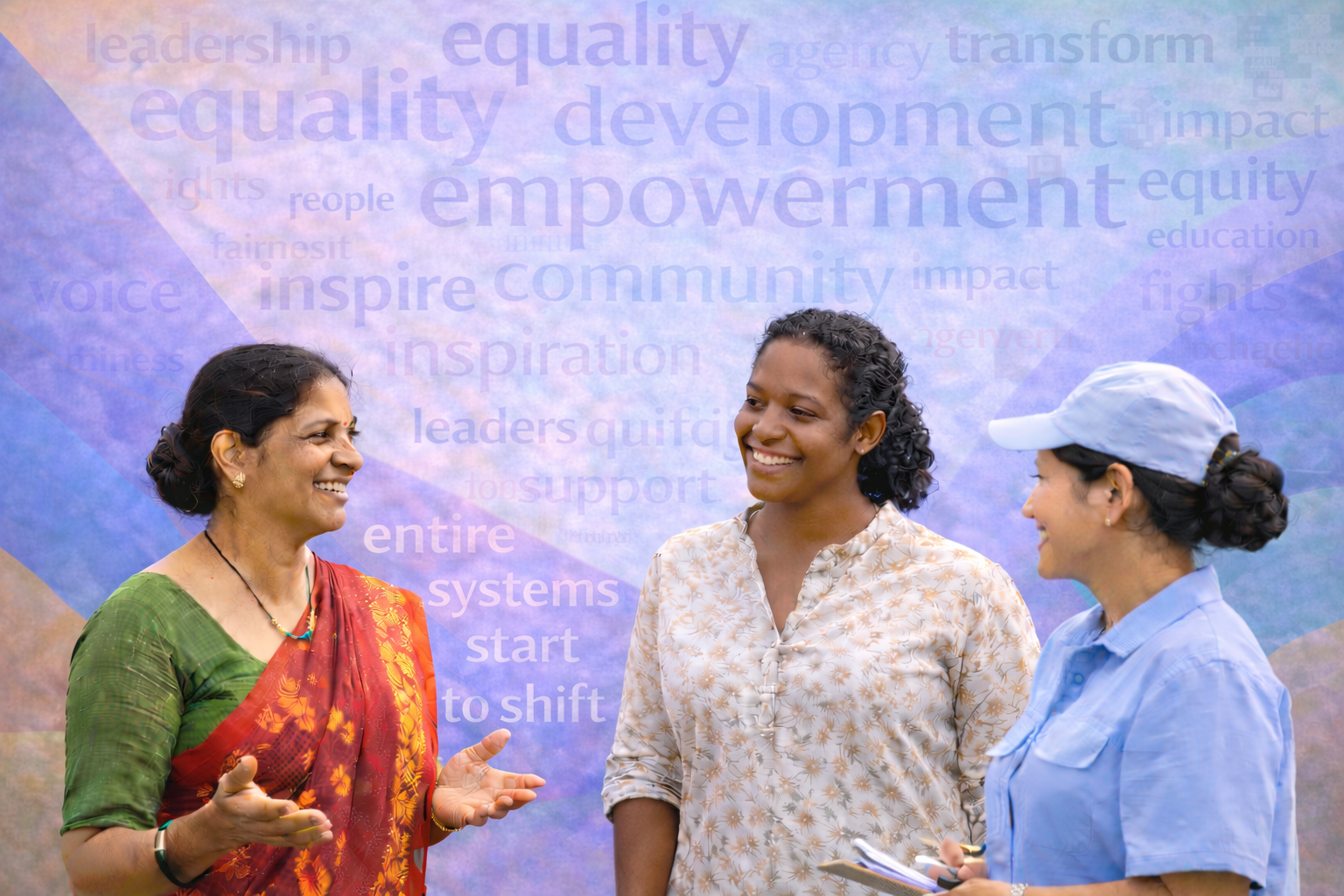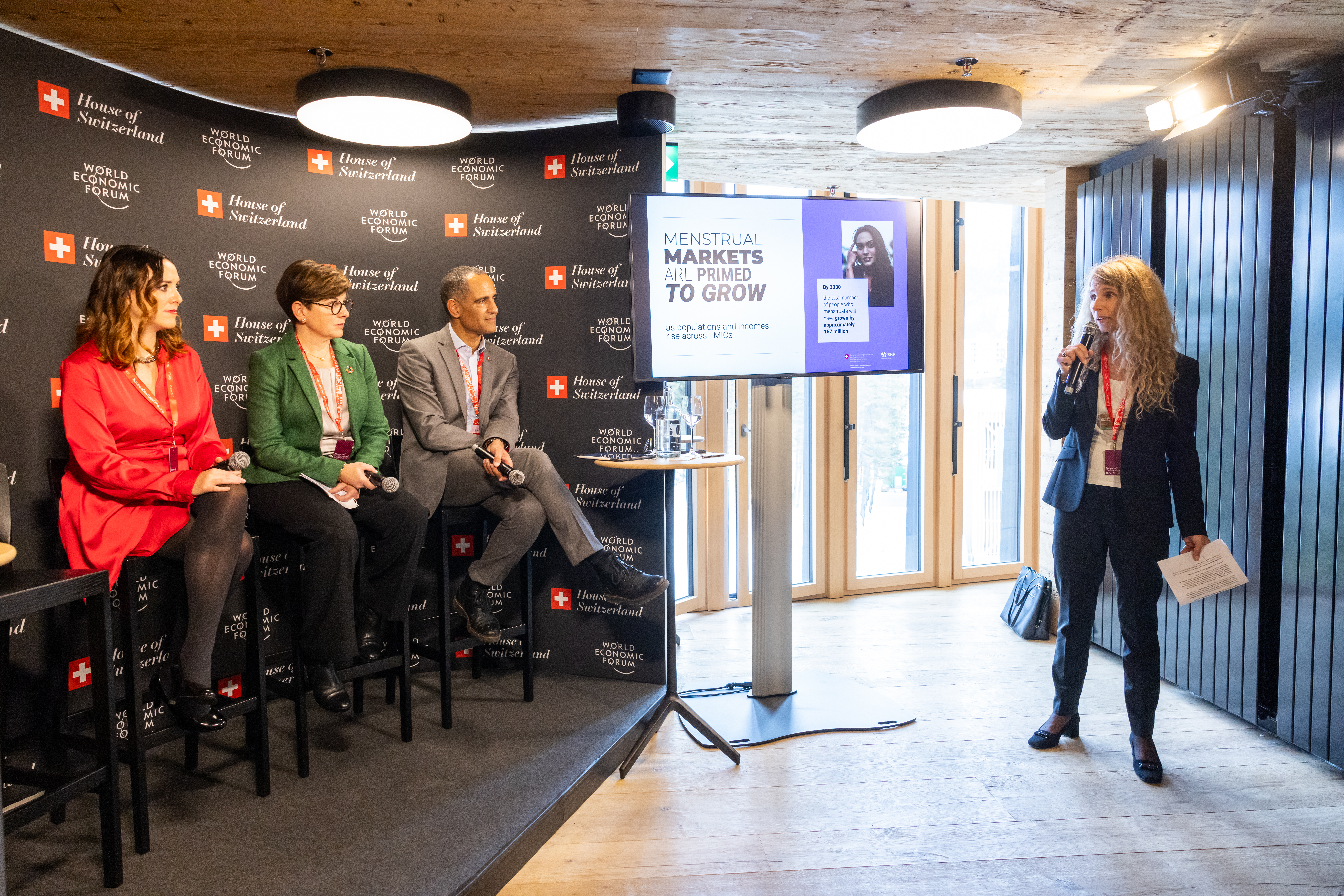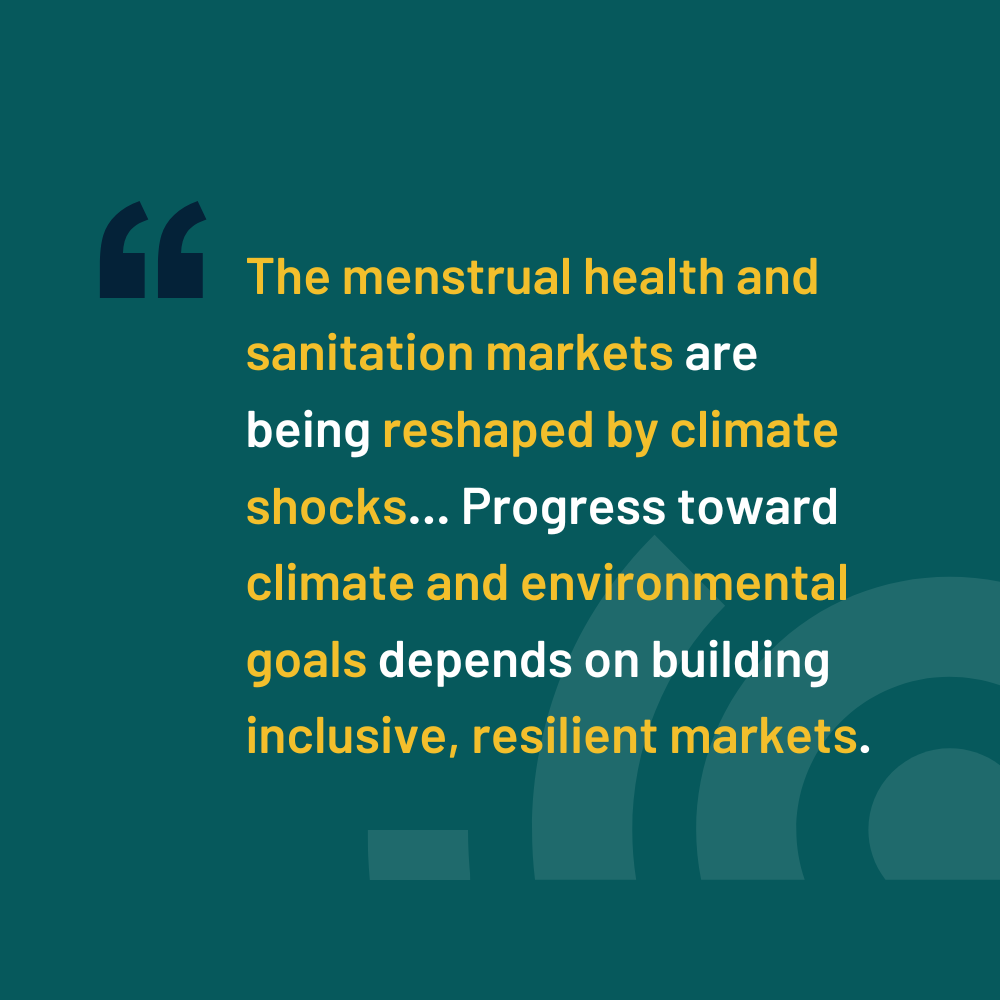
Building A Thriving Menstrual Health Market for all: The Road from Davos

In January 2024, the Sanitation and Hygiene Fund (SHF) and the Swiss Agency for Development and Cooperation (SDC) took menstrual health to the heart of the World Economic Forum (WEF) in Davos. A year later, we reflect on progress achieved through SHF’s new global initiative, Capital M, launched shortly after.
Each January, the small Swiss mountain town of Davos transforms into a bustling hub of action as the WEF annual meeting convenes leaders from government, business, and civil society to tackle the world’s most urgent challenges—and explore promising solutions.
Last year, SHF and SDC brought menstrual health to the forefront of the global agenda at the House of Switzerland to emphasize the critical intersection between menstrual health, women's well-being, economic growth, and environmental sustainability. One year later, we take stock of progress achieved through Capital M, an innovative global initiative that aims to increase equitable access to quality menstrual products in Low- and Middle-Income Countries (LMICs) while promoting economic inclusion.
Toward A Thriving Menstrual Health Market
Today, over 600 million women and girls - a staggering one in three - living in LMICs lack access to adequate menstrual products. Instead, they rely on improvised solutions—like toilet paper and rags—for an average of 35 years of their lives. As Community Health and Gender Activist and SHF Board Member Naomi Tulay-Solanke explains, “In LMICs, we know cost can be prohibitive - a family may have to choose food over menstrual products”. There is an urgent need for a transformative approach to ensure access to safe, affordable, and quality menstrual products for all.
Launched in 2024, Capital M aims to increase equitable access to quality menstrual products in LMICs, while promoting economic inclusion. This involves partnering with governments to tackle key market barriers, strengthening private sector capacity, nurturing solutions that show the most promise to reach scale, and ensuring that required financing is available for scale.
In 2024, global efforts focused on supporting the long overdue development of ISO global quality standards for menstrual products, highlighting a concerning reality: products used by hundreds of millions of women and girls around the world currently lack the same rigorous safety and quality standards applied to everyday items like ballpoint pens or paper clips. The absence of standards - essential requisites for manufacturing, retail and trade - has been hindering the growth of the menstrual health market. Together with the Swedish Institute for Standards, Capital M will be focusing on ensuring greater participation of LMICs in this process, to be concluded in 2027.
Capital M also invested in improving data and knowledge for this nascent market. This notably included developing an open-source guide, the Menstrual Hygiene Market Maturity Assessment Tool, to help inform decision-makers on key market barriers that need to be addressed. This innovative tool will be rolled out in Kenya and other countries starting in 2025. Capital M also entered a partnership with the Reproductive Health Supplies Coalition (RHSC), leveraging RHSC’s extensive network and expertise to improve market data visibility, advocate for product standards, and address cost drivers that impede access to menstrual health products.
Meanwhile, Capital M laid the foundations for a thriving menstrual health market in Kenya, Nigeria and Uganda, providing technical assistance to governments to create a favorable business environment for the menstrual health market. Capital M will also soon be supporting menstrual health enterprises across sub-Saharan Africa in partnership with the Gates Foundation to develop scalable business models that can provide access to reusable menstrual products across the continent.
A Pivotal Moment for Collective Action
“Changing the trajectory of investment in menstrual health and hygiene requires a coordinated effort across multiple fronts to raise awareness, reduce stigma, and demonstrate the clear economic and social returns of investing in this space” says Wendy Anderson, Co-Founder of The Case for Her and new SHF Board member, who has been investing in menstrual health for more than a decade.
Partnerships and collective action are indeed key to achieving success in this frontier emerging market. In 2024, SHF co-convened the Menstrual Health Funders Group with the Swiss Agency for Development and Cooperation (SDC), bringing together various experts and funders to exchange good practices and co-create a success pathway for the menstrual health market.
SHF also launched a Commitment to Action with the Clinton Global Initiative to support the development of thriving menstrual health markets, and supported the Global Menstrual Hygiene Day movement, organized by WASH United, to ensure market-based approaches are recognized as essential solutions for menstrual health.
This is just the beginning. The path paved from Davos 2024 is already driving change, and as we move forward in 2025, we are poised to deepen our impact through new partnerships and initiatives. Importantly, this work could not have happened without the invaluable support of our donors, the Kingdom of the Netherlands, Switzerland and the Gates Foundation.
With deeper investments, collaborations, and innovations, Capital M is committed to advancing menstrual health for women and girls, and the societies and economies they power. Together, we are shaping a future where access to menstrual health is no longer a barrier but a catalyst for opportunity and impact.
***
- Contact us for more information and partnership requests.
- Follow us on LinkedIn for news and updates on our work and the menstrual health market.
- Visit our website for the latest on Capital M.



